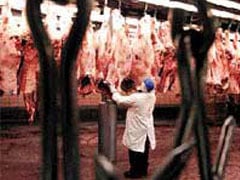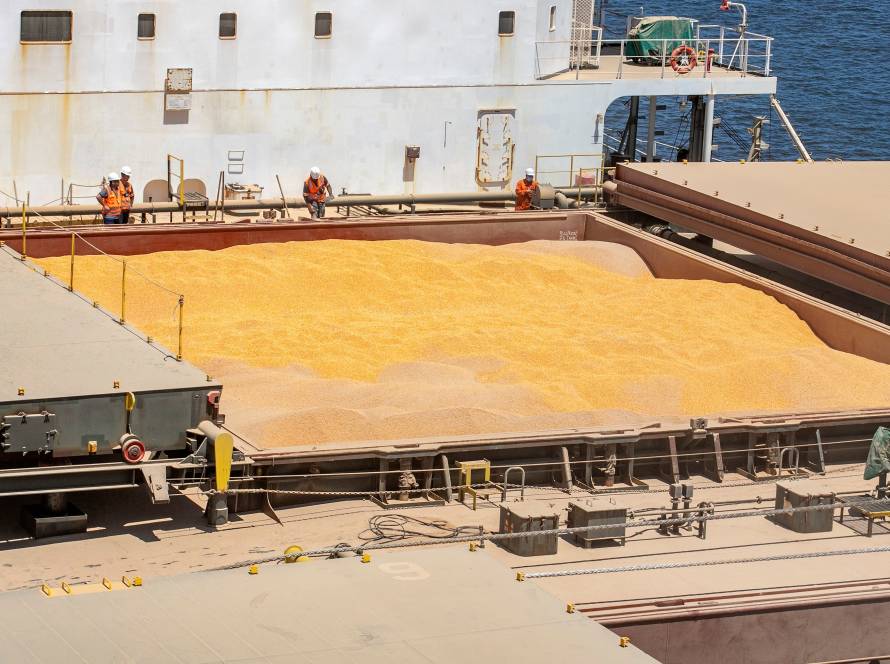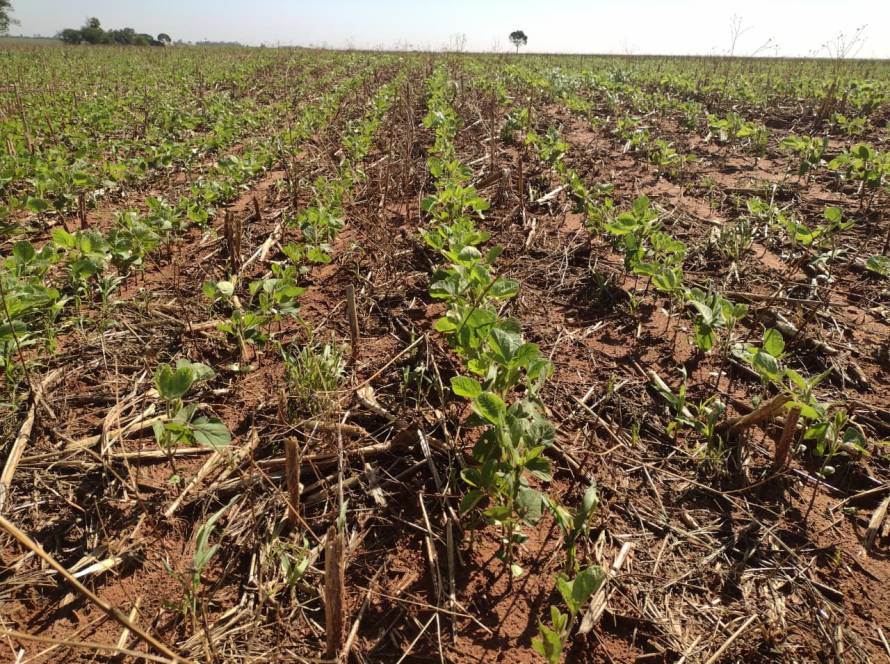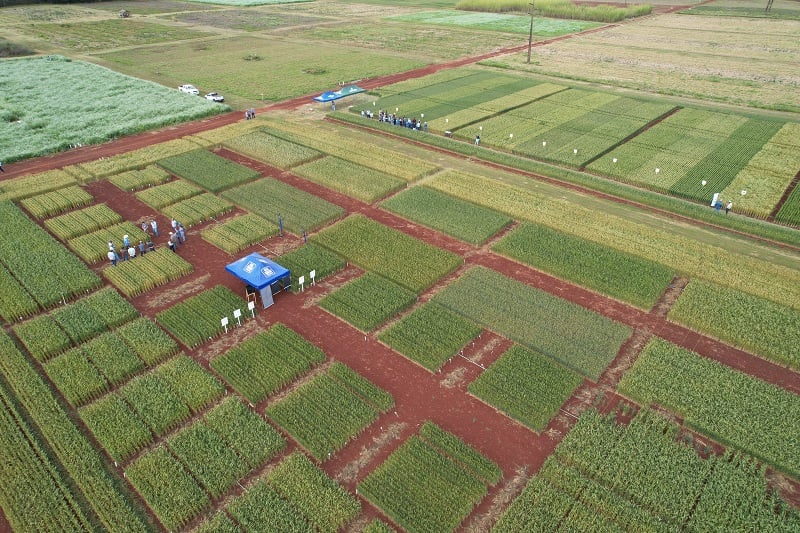Combining science, technology and commitment to sustainable development, the Ministry of Agriculture and Livestock (Mapa) is launching the Solo Vivo Program this Saturday (24), in Campo Verde (MT), at an event attended by President Luiz Inácio Lula da Silva and the Minister of Mapa, Carlos Fávaro. The initiative is a partnership with the Federation of Agricultural Workers of the state of Mato Grosso (Fetagri-MT), responsible for managing the project, and with the Federal Institute of Mato Grosso (IFMT), which will be in charge of technical studies for soil analysis and correction. The initial investment is R$$ 42.8 million.
Minister Fávaro highlighted the robustness and efficiency of the Solo Vivo program. “It is a carefully planned initiative. Our goal is to recover degraded areas, strengthen agriculture and increase the competitiveness of our products. This work will have an impact on the lives of many people,” said the minister.
An example of the robustness of the Program is the operational management, which ensures efficiency in the field. Mapa consultant César Pardini explains the operational part, technical management and monitoring of the use of agricultural machinery and implements. “The entire process begins with soil analysis performed by IFMT. Based on the laboratory results, we identify the needs of each property and apply the necessary inputs, mainly limestone and phosphate.”
According to Pardini, all soil correction work is monitored in real time through a digital management platform called Operation Center, which allows monitoring the location of machines, ongoing activities and the performance of each operation in the field. “This ensures total transparency and efficiency in the execution of actions,” he highlights.
Divino Martins, president of Fetagri-MT, explains that Solo Vivo was born from the need to offer family farmers conditions to improve the productivity and quality of the food they produce. “Our soils are tired, worn out from so many years of use without due care in replenishing nutrients. The project aims to correct this, recover these lands and allow farmers to produce with greater quality and safety,” he explains.
Divino highlights that, in this first stage, around 800 to 1,000 families will be served, on properties averaging 10 to 15 hectares each, within the settlements.
The pilot project in MT includes actions in 10 municipalities in the state: Alto Araguaia, Campo Verde, Poconé, Rosario Oeste, Barra do Bugres, São Felix do Araguaia, Matupá, Juína, Pontes e Lacerda and São José dos Quatro Marcos. Initially, the activities will begin in the first five: Campo Verde, Poconé, São José dos Quatro Marcos, São Felix do Araguaia and Juína.
IFMT leads soil diagnosis and analysis
The Federal Institute of Mato Grosso (IFMT) is responsible for carrying out technical studies, laboratory analyses and guiding soil correction practices.
For the rector of IFMT, Júlio César dos Santos, the partnership with Mapa strengthens the role of technological extension in meeting the social and economic demands of the state. “IFMT has received support from the Ministry of Agriculture to develop extension activities that truly make a difference in the lives of people who need public services in our state. Solo Vivo is a practical example of this. It will directly increase the productivity of producers in settlements, generating income, employment and helping to keep men and women in the countryside,” he says.
The project coordinator at IFMT, Marcos Valim, also emphasizes the importance of the Institute’s role in the initiative. “The participation of the Federal Institute of Mato Grosso in the Solo Vivo Project is a source of great pride and reflects our commitment to applying science and technology to the development of Mato Grosso,” he highlights.
In this first stage, which Valim considers essential for the success of the program, teams made up of teachers, technicians and a significant number of 43 scholarship students, 22 of whom are from Integrated High School, are committed to carrying out a detailed and precise diagnosis of soil fertility in the state's rural settlements. “To do this, we mobilized the expertise present in ten IFMT campuses, using the innovative SolIF software and laboratories that are being structured with MAPA resources,” he explains.
The coordinator emphasizes that this work of collecting, analyzing and preparing technical reports is the basis for the Ministry of Agriculture to implement soil correction and management actions, which are fundamental to transforming the productive reality of family farmers.
“This is IFMT fulfilling its mission, materializing the tripod of Professional and Technological Education, with extension as the front line in the transformation of realities, inseparable from research that generates knowledge and teaching that forms qualified citizens and professionals”, he concludes.
In addition to field and laboratory work, IFMT has also developed a free online course, “Living Soil Methodology: From Sample Collection to Soil Analysis,” which already has more than 180 registrants. The course, in addition to being mandatory for scholarship holders, also democratizes access to the methodologies applied in the project, expanding the scope of the initiative.
Another distinguishing feature of Solo Vivo is the formation of a highly qualified team, composed of professors, researchers and technicians who work in research groups in the areas of soil science, sustainability, agricultural systems and geotechnologies. This technical structure guarantees scientific rigor and quality in diagnoses and recommendations.
Student leadership is also noteworthy. Students are involved in all stages of the project, participating in field collections, laboratory analyses, technology development and even the creation of digital solutions, such as SolIF itself, developed within IFMT.
About the Solo Vivo Program
The Solo Vivo Program focuses on restoring degraded areas designated for family farming in Mato Grosso. The initiative seeks to improve soil quality, increase crop productivity, strengthen income generation and encourage families to remain in the countryside. The program is a partnership between the Ministry of Agriculture and Livestock, Fetagri-MT and the Federal Institute of Mato Grosso (IFMT), and covers 10 settlements in different regions of the state.




